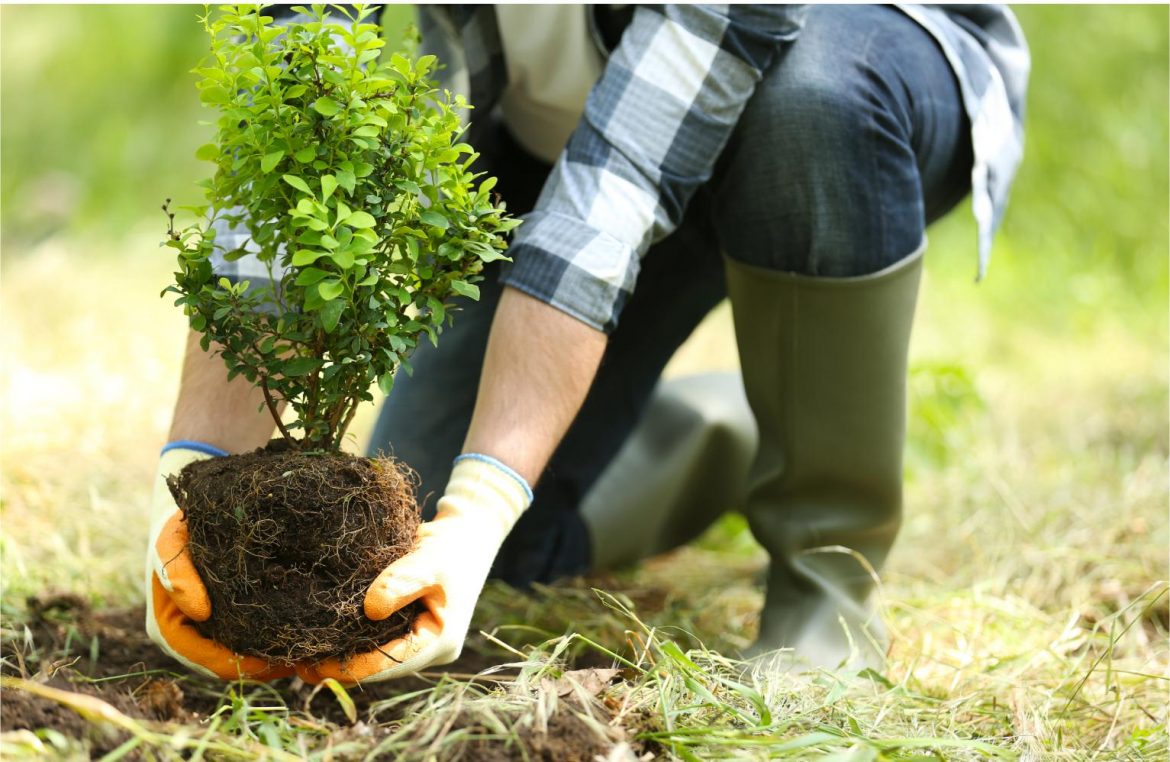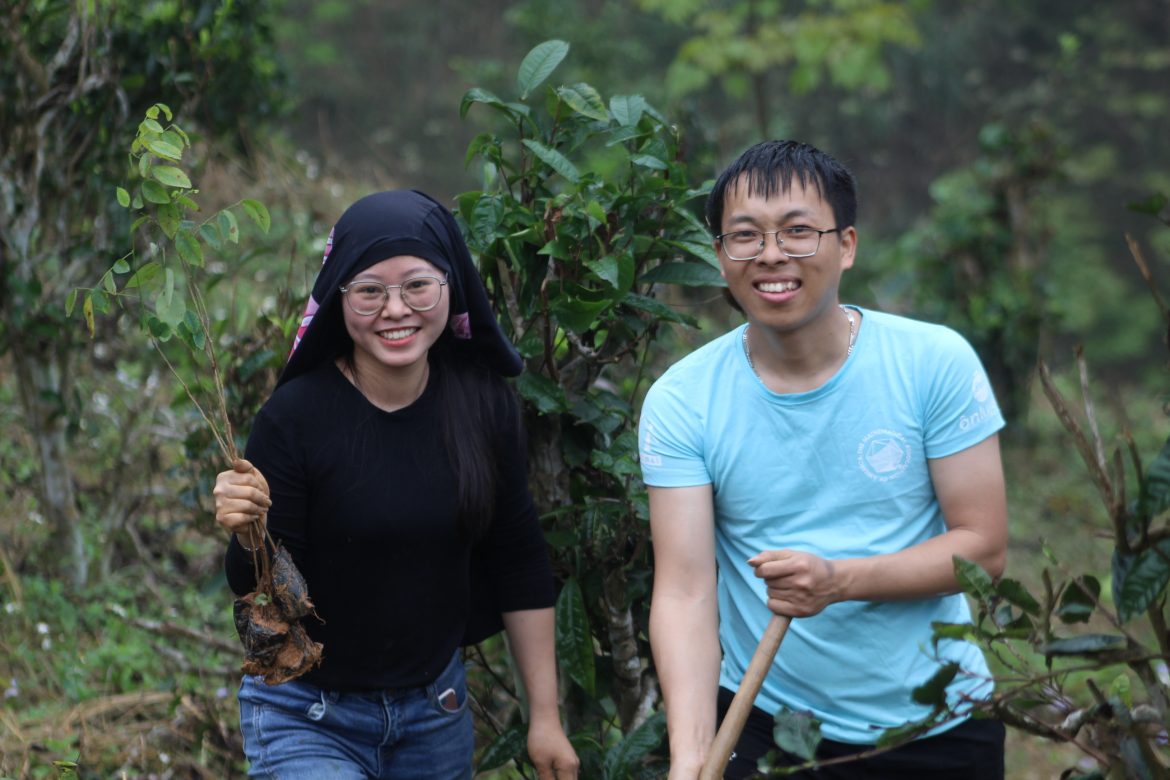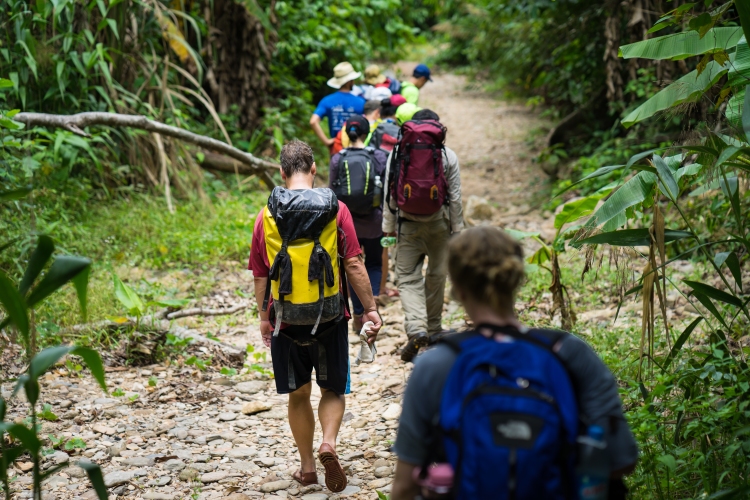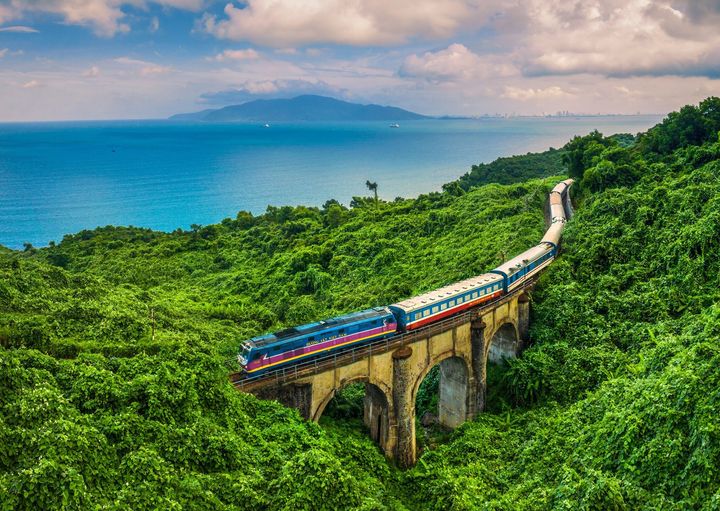Traveling through Vietnam’s stunning landscapes and vibrant culture can be a transformative experience, but it also leaves a carbon footprint. Carbon Offset is a way to balance the environmental impact of your journey, supporting projects that restore nature and reduce emissions. Discover how you can travel responsibly, making a positive impact on Vietnam’s ecosystems while exploring its wonders.
What is Carbon Offset?
Carbon offsetting is a practical and impactful way to reduce the environmental impact of our carbon emissions. Essentially, it involves balancing out emissions generated from activities like travel, manufacturing, or energy use by funding initiatives that reduce or capture an equivalent amount of CO₂. These projects can include reforestation, renewable energy, or soil restoration, each working to prevent or remove CO₂ from the atmosphere. Through offsetting, we can achieve a “net-zero” impact on the environment.

Planting Tree – One of the best way for Carbon Offset
How is Carbon Emission Calculated?
Calculating carbon emissions requires a comprehensive look at all activities that contribute to a carbon footprint. In tourism, this means emissions from transportation, accommodation, meals, and other services. Advanced tools and calculators help assess fuel usage, energy consumption, and waste disposal to estimate total emissions. Accurate carbon calculations empower businesses to set clear reduction targets and plan effective offset initiatives.
Why Should We Offset Carbon Emissions?
The need to offset carbon emissions has grown due to their direct contribution to climate change. Carbon dioxide and other greenhouse gases form an insulating layer in the atmosphere, trapping heat and driving global warming. This warming has led to extreme weather patterns, intense storms, droughts, and rising sea levels. Offsetting carbon emissions is a tangible way to protect the planet, enabling travelers and businesses to restore environmental balance responsibly.
The Impact of Carbon Emissions on Climate Change
Carbon emissions are a major contributor to climate change. Activities like burning fossil fuels, deforestation, and industrial processes release billions of tons of CO₂ annually. These emissions drive global temperature increases, causing glaciers to melt, extreme weather events to rise, and ecosystems to alter drastically. In tourism, where travel activities are often energy-intensive, offsetting emissions can help reduce the sector’s environmental impact and mitigate future climate disruptions.

LuxGroup Foundation Launches Planting Trees in Yen Bai
Carbon Offseting in Tourism: A Practical Approach
In tourism, carbon offsetting is a simple yet effective way for both businesses and travelers to reduce their carbon footprint. Options for offsetting in the industry include investing in renewable energy, supporting forest conservation, and funding sustainable agriculture. Many tourism companies now offer guests the option to contribute to carbon offset programs, giving eco-conscious travelers a meaningful way to make a difference.
How Travelers Can Join Carbon Offset Efforts with Lux Travel DMC in Southeast Asia
As tourism’s impact on the environment grows, more travelers seek ways to reduce their carbon footprint. Here are some actions that travelers can take with Lux Travel DMC to help protect local ecosystems and promote carbon offsetting in Southeast Asia:
1. Support Local Green Projects
Regionally-focused projects, like reforestation and mangrove restoration, are crucial for Vietnam. For instance, planting trees in mountain areas or supporting clean cookstove initiatives for rural communities directly reduces emissions. Mangroves, which grow densely in areas like the Mekong Delta, capture CO₂ efficiently, making them a highly effective choice for offsetting.
2. Join LuxGroup Foundation’s “Green Seedling” Project
LuxGroup Foundation launched the “Green Seedling” project in 2024, aiming to plant 2,000 trees in Yen Bai, a disaster-prone region. With a donation of just $1.20, travelers can help plant a tree, contributing to CO₂ absorption and protecting the region against floods and landslides. These trees also stabilize soil and open ecotourism opportunities for local communities.

Trekking tours in Con Dao National Park
3. Explore Low-Carbon Tours with Lux Travel DMC
As one of leading travel company in sustainability in Vietnam, Lux Travel DMC now offers low-carbon tours focusing on eco-friendly experiences. From cycling and nature treks to cultural exchanges with local communities, these tours reduce vehicle usage, leaving a minimal environmental impact. Southeast Asia offers many low-impact activities, such as electric bike tours, guided nature walks, and traditional boat rides, for eco-conscious travelers. You may send us an inquiry for Lux Travel DMC about sustainable tours or low-carbon tours in Vietnam at sales@luxtraveldmc.com.
4. Stay at Eco-Resorts Committed to Sustainability
LuxGroup partners with eco-resorts in locations like Hoi An and Con Dao, which prioritize sustainable construction, solar power, and water conservation. Travelers who stay at these resorts enjoy a comfortable, eco-friendly experience while supporting ongoing carbon reduction efforts. Choosing green accommodations helps foster low-impact tourism and encourages wider industry adoption of sustainable practices.
5. Embrace Public Transportation and Renewable Energy Options
Using public transportation, like Vietnam’s scenic train, electric, bikes routes, reduces emissions compared to private car rentals or flights. Lux Travel DMC encourages visitors to opt for these routes to explore destinations sustainably. Further, by promoting renewable energy initiatives in tourism hotspots, like solar lighting for resorts, travelers can support tourism powered by clean energy.

Train in Vietnam -a responsible way
With every conscious choice, travelers help reduce tourism’s environmental impact, supporting carbon offset initiatives and ensuring their journeys contribute to a more sustainable future for Southeast Asia. Join Lux Travel DMC in making a positive impact, one offset at a time.
About Lux Travel DMC
Lux Travel DMC, Asia’s Leading Luxury Tour Operator, proudly became a Travelife Partner in December 2023 and has been striving to achieve Travelife certification in 2024. We are committed to advancing sustainable tourism and achieving our “Net Positive” goals by 2030. Our initiatives focus on reducing plastic waste, protecting biodiversity, promoting eco-friendly trips, respecting local cultures, and maintaining transparency. Founded in 2005, Lux Travel DMC specializes in tailor-made tours across Asia and has received numerous prestigious awards.
